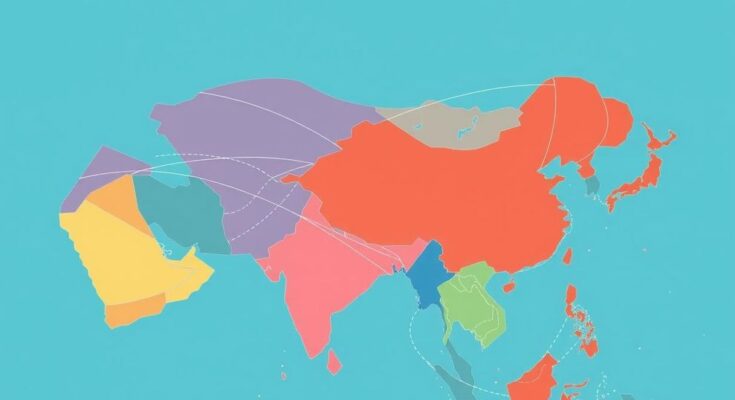At the inaugural EU-Central Asia summit in Samarkand, Uzbekistan, on April 3-4, 2025, Human Rights Watch insists that the EU prioritise human rights in its growing relations with Central Asia. The EU’s partnerships must be anchored in rights protections and the rule of law to safeguard mutual interests in the region.
Iskra Kirova, the Europe and Central Asia advocacy director at Human Rights Watch, stated, “It is good news that the EU is engaging at a high level with Central Asia, but to be effective, the talks need to address the very serious human rights concerns across the region.” This reflects the dire need for progress amidst ongoing state repression, including the jailing of critics and restrictions on media.
Recent years have highlighted severe human rights violations in Central Asia, contributing to regional instability. Notable incidents include the violent suppression of protests in Kazakhstan and Tajikistan, revealing an alarming trend of unaccountability for police brutality led by authoritarian regimes.
Media freedoms are gravely threatened across Central Asia, where governments exercise stringent controls on information flow. Turkmenistan fully monopolises information access, Kazakhstan imposes strict registration laws on online publications, and Uzbekistan harasses those who criticise the government, highlighting a systemic trend of curtailing independent journalism.
Kyrgyzstan’s media environment worsened in 2024, marked by the arrest of journalists from independent outlets and the closure of award-winning media for alleged registration failures. Similarly, Tajikistan continues to imprison journalists reporting on government crackdowns, further exemplifying the region’s oppressive nature towards free speech.
Legislation in Central Asia restricts civil society, exacerbating repression. Kyrgyzstan’s laws mimic those of Russia, stifling nonprofit activities, while Turkmenistan exhibits virtually no independent organisations. Uzbekistan acknowledges civil rights only through government-sanctioned entities and continues to jail activists critical of corruption.
Kazakhstan leverages vague extremism laws to imprison dissidents, and Tajikistan recently sentenced multiple political figures on charges of treason. This environment warrants the EU’s active role in advocating for the release of rights defenders and journalists unjustly imprisoned across the region.
The new Enhanced Partnership and Cooperation Agreements under negotiation can incorporate human rights considerations to ensure that civil liberties become a core expectation. While providing trade benefits, the EU must insist on compliance with international obligations on human rights.
Kirova emphasised the summit’s potential, stating, “The first EU-Central Asia summit is an important milestone. The EU should use this moment to shape a well-rounded and sustainable partnership with Central Asian states that requires human rights to be a central part of the agenda.”
The EU is urged to prioritise human rights in its engagement with Central Asia at the April 2025 summit in Uzbekistan. Human Rights Watch highlights widespread repression in the region, including media suppression and imprisonment of rights defenders. There are calls for the EU to leverage partnership agreements to secure human rights advancements, emphasising accountability and reform as essential components for future cooperation.
The EU should seize the opportunity presented by the upcoming summit to firmly place human rights at the forefront of its strategies in Central Asia. By addressing serious human rights abuses and enforcing accountability, the EU can foster productive and sustainable partnerships that recognise the essential connection between human rights, stability, and economic cooperation. Advocating for legislative reforms will help ensure that the region aligns with international human rights standards, benefiting both citizens and diplomatic relations.
Original Source: www.hrw.org



